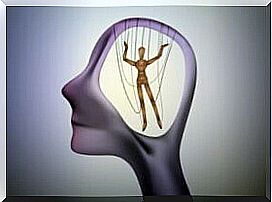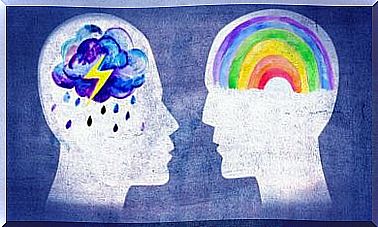Anxiety Associated With Illness, A Very Common Disorder

Fear of being infected, of contracting diseases, constantly consulting the Internet to check whether the discomfort felt is the symptom of a serious illness … The anxiety associated with the disease has been more present in recent months. So much so that many people see their lives limited and dominated by this apprehension.
This description immediately makes us think of the profile of the classic hypochondriac. It should be noted, however, that this term ceased to be used in the diagnostic terminology of the Diagnostic and Statistical Manual of Mental Disorders Fifth Edition (DSM-5), in 2013.
It is not easy to live with this constant anxiety about falling ill. Fear causes the affected person to fail to live normally. It fuels the suffering even more. In addition, this psychological condition is difficult to diagnose.
When a person presents their symptoms to the doctor, the doctor is more likely to focus on seeing these symptoms. The anxiety of the person and the mental state that can fuel the situation are not always taken into account. Let’s dig deeper into the subject.

Anxiety associated with the disease: symptoms, causes and treatment
On the one hand, when these patients are in good health according to their doctor, they do not feel satisfied and seek other opinions. They don’t give up. On the other hand, there are also those who do not go to the health center for fear of discovering an illness. “What if I’m diagnosed with something serious?” “What if they told me there is no cure for my condition?”
As we can see, these are states in which fear causes a vicious cycle. The problem is that this situation is usually chronic. That is to say that some people suffer from it since adolescence.
In the event that one does not receive help, life is very limited. It is focused exclusively on the own body, on finding symptoms that one later tries to compare with clinical descriptions found on the Internet.
It should be noted again that we are no longer talking about hypochondriacs: the pejorative nuance has been removed from diagnostic manuals and more factors are now taken into account. Find out more in the rest of this article.
What are the symptoms of anxiety associated with the disease?
Until not long ago, we used to call people who are afraid of almost any disease that exists “hypochondriacs”. This behavior goes much deeper.
He hides emotional suffering. So, to make a correct diagnosis, the Diagnostic and Statistical Manual of Mental Disorders (DSM-5) tells us to look at the following criteria:
- The patient is in a constant state of worry which has lasted for more than 6 months. His anxiety lies in contracting different illnesses or suffering from certain psychological disorders.
- He is easily alarmed by any discomfort. Itchy skin, stomach ache, twitching in the eyes, discomfort in the throat, cough …
- Despite these fears, he does not present any real illness or medical manifestation.
- People with illness-related anxiety tend to go to medical appointments frequently. On the other hand, there are also those who are very afraid to go, which further intensifies the discomfort.
What is its origin ?
The disease anxiety disorder often has more than one comorbid condition. That is, on average, a person who is afraid of getting sick suffers from certain psychological conditions and has unresolved issues for years. Some studies like those conducted at the University of Madhya Pradesh, India, share some interesting data:
- Many people who see a doctor suffer from anxiety associated with the disease.
- About 18% of these patients have a family history with the same clinical condition.
- 32.1% suffered abuse in their childhood.
- 25% also suffered from depression.
- 23% suffered from some type of anxiety disorder (phobias, generalized anxiety disorder, etc.).
In other words, the anxiety associated with the disease hides triggers in the field of psychology. And, in turn, it causes other psychological problems.

How is it treated?
Is there a solution for people with this type of anxiety? Of course, there are. However, it is necessary to go through psychological therapy and, more specifically, cognitive behavioral therapy. The idea is to put aside dysfunctional thoughts, those that intensify problems and suffering.
Little by little and day after day, the person manages to have healthier reasoning, reflections and thoughts. In addition, it is essential to also deal with the source at the origin of this situation (abuse in childhood, traumatic experiences, etc.).
In addition, anxiolytics or antidepressants (such as serotonin reuptake inhibitors) can also be used. But that decision is up to the doctor. The most effective treatment remains psychological therapy. Let’s keep this in mind.










